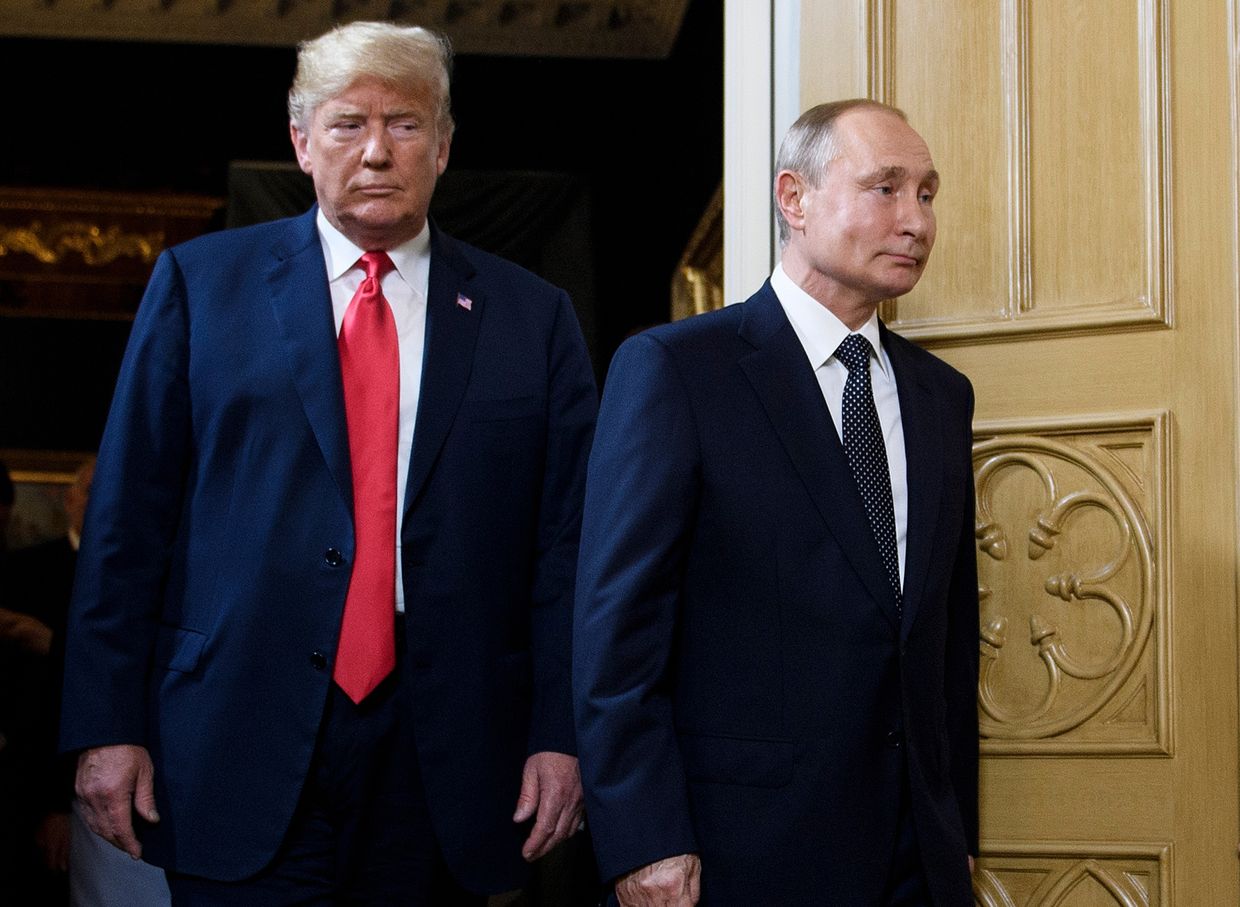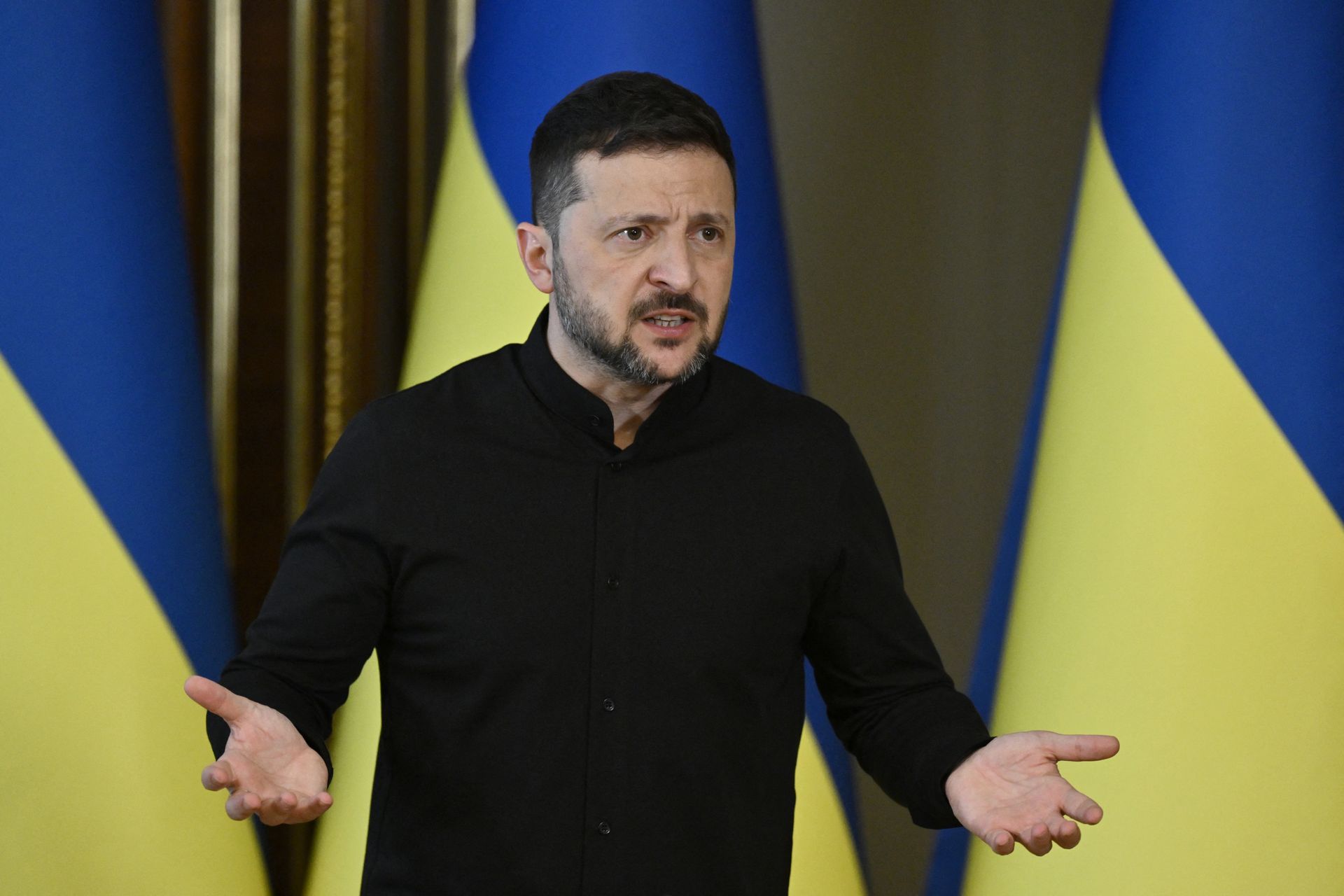Mobilization gridlock: How politics, policy, and public opinion are shaping Ukraine’s war effort
While front-line units stretched thin, politicians dodge responsibility for an increasingly unpopular draft

The first recruits under the “Contract 18-24” project undergo initiation in the 92nd Assault Brigade in Kharkiv Oblast, Ukraine, on March 16, 2025. (Polina Kulish / Gwara Media / Global Images Ukraine via Getty Images)
As Ukraine struggles to replenish front-line units after 42 months of all-out war, those in power prefer to avoid publicly commenting on mobilization efforts and the way it is conducted.
Political experts say mobilization became a "toxic" and politicized issue, with high-ranking officials — from the president to ministers and lawmakers — trying to avoid being associated with the cause.
"In my opinion, most politicians are afraid to raise this topic because it is controversial," political analyst Volodymyr Fesenko told the Kyiv Independent.
Following the initial spike in the number of volunteers joining the Armed Forces, Kyiv has mostly turned to conscription.
Ukraine is mobilizing about 30,000 people per month, but only a third of them are fit to fight, a senior Ukrainian official told the Kyiv Independent on condition of anonymity. President Volodymyr Zelensky has repeatedly said that Ukraine's army is roughly 1 million strong, but Ukrainian military analyst Serhiy Hrabskyi estimated that it needs three times more to be able to rotate battle-torn units out into the rears. Many guys brought into the war often struggle physically and mentally.
"The guys know that their service is until the end of the war, or their life," Dmytro, an infantryman with the Territorial Defense Forces of Ukraine, told the Kyiv Independent.
Ukraine's mobilization efforts come as Russia continues to slowly advance across the front, relying on its vast manpower advantage and what often feels like endless resources, including an upper hand in drone warfare. The Ukrainian manpower shortage leaves the army prone to leaving weak spots on the front for the Russian troops to exploit.
Commander-in-Chief Oleksandr Syrskyi listed mobilization measures as among the key objectives to defend the country against Russia, especially as Moscow accumulates more force.
Syrskyi said on Aug. 5 that Russia is mobilizing more troops than it is losing, growing its forces by 9,000 a month despite losing over 33,000 troops in July alone. While Ukraine has not released its casualty rate, military experts say the current mobilization pace is not filling the gaps left behind by battlefield losses — leading to situations where soldiers have to be sometimes deployed a month or two to the "zero" line without the possibility of rotation.
The West has pushed Kyiv to boost mobilization efforts to better hold off Russia's ongoing offensive, with some allies, according to Zelensky, refraining from imposing new sanctions on Russia partly because Kyiv is refusing to lower the mobilization age from 25 to 18.
Ukraine has so far kept the mobilization age from 25 to 60, after lowering it from 27 in 2024.

Of the roughly 30,000 that Kyiv says it is mobilizing, about half of them are the soldiers who are returning from AWOL, or absent without leave, according to a Ukrainian official familiar with the matter.
The official, who spoke on the condition of anonymity due to the topic's sensitivity, said that the remaining 40 percent are from the enlistment offices, while the remaining 10 percent came from foreign volunteer recruitment and the new one-year voluntary military contract for 18-24-year-olds.
Zelensky's last major announcement regarding mobilization was the introduction of the "special contracts" for young draft-exempt Ukrainians, trying to lure them with high financial and social benefits. Zelensky expanded the contract program for 18-24-year-olds in July, adding the option for them to join drone units.
Mobilization appears to be an uncomfortable topic for Zelensky as well, according to Yuriy Honcharenko, head of the InfoLight.UA research and analytical group.
"Unpopular decisions that need to be made in order to fix the situation may lead to a drop in the popularity of those who will make them, perhaps even the loss of some kind of future political prospects," Honcharenko told the Kyiv Independent.
After the program to lure young recruits likely fell short of expectations, it appeared that Zelensky "no longer wants to be directly associated with mobilization," Honcharenko alleges.
Zelensky's last publicized meeting with Defense Minister Rustum Umerov that focused on mobilization was in November 2023, during which he instructed Umerov and the then Commander-in-Chief, Valerii Zaluzhnyi, to present a new mobilization plan.
Almost two years since then, the president made only a handful of comments about mobilization.
Political analyst Fesenko argued that mobilization is a complicated issue, especially for draft-eligible men and their families, who don't want their relatives to serve in the army. Some politicians, Fesenko said, see them as potential voters, and they try, at least partially, to act in their interests, criticizing forced mobilization methods.
Fesenko believes that it won't actually have much of an impact on post-war elections, as new issues will arise by then, and politicians' stance toward mobilization will play a small role.
Following amendments to the mobilization law adopted in April 2024, a survey by research agency Info Sapiens showed that 21 percent of Ukrainians perceive mobilization as positive, while 22 percent are neutral, and 44 percent had either an absolutely negative or rather negative view.
"Let's first preserve our statehood, and then we will worry who will become the president and who will head the next parliament."
Ruslan Gorbenko, a lawmaker from the ruling Servant of the People, admitted that "a certain percentage of politicians" are working in their interests to be elected in the upcoming elections, rather than in the country's interests.
Gorbenko added that others are trying to avoid the topic, worried that drastic measures such as reforming the draft office or lowering the draft age would hurt them in the long run.
Political and military experts who spoke to the Kyiv Independent said that mobilization has been "politicized" since 2023, when the number of volunteers decreased while the need for new soldiers had increased. After the failed summer counteroffensive, it also became clear that it would be a long war, and joining the army wouldn't be a short-term endeavor.
The experts agreed that the topic's sensitivity has slowed down the crucial decision-making process regarding mobilization.

What analyst Honcharenko worries about above all is the polarization of society, fueled by the military enlistment officers' attempts to conscript more men. The drafters are often accused of ignoring fundamental civil rights, such as taking away conscripts' cell phones and forcing them into a bus, which led to a recent protest in the central city of Vinnytsia. The police used tear gas to disperse the crowd and to prevent the protesters from getting into a detention facility.
Honcharenko believes that the tensions would rise as the situation on the front becomes tougher and mobilization remains a "politicized" topic. He stressed that the Defense Ministry should have more autonomy in organizing and coordinating mobilization, and be more open about how it is conducted.
Honcharenko also hopes that politicians will take responsibility and improve the draft process.
"Let's first preserve our statehood, and then we will worry who will become the president and who will head the next parliament," Honcharenko said.











